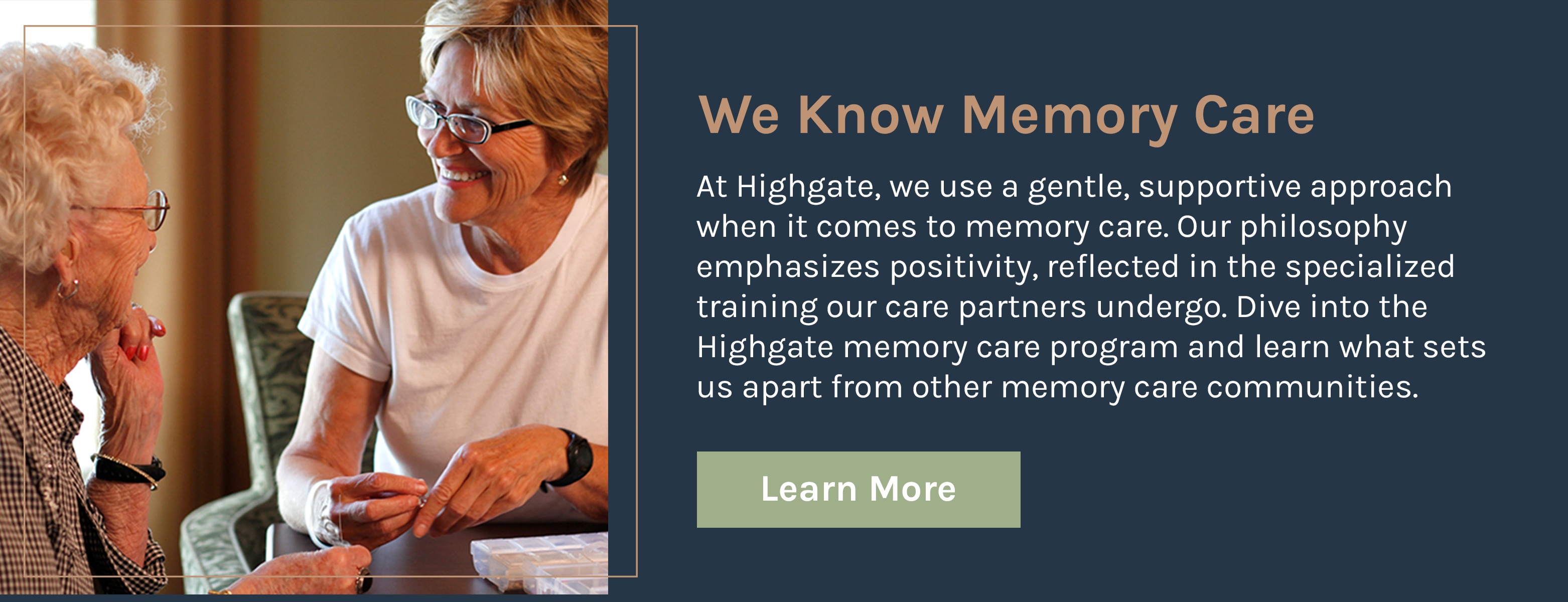 In-home care services and assisted living facilities help elderly adults who have trouble performing the activities of daily living. However, elderly adults with a dementia diagnosis who have memory problems often need specialized care.
In-home care services and assisted living facilities help elderly adults who have trouble performing the activities of daily living. However, elderly adults with a dementia diagnosis who have memory problems often need specialized care.
Memory care units provide the extra attention and expertise that people with advanced symptoms of dementia require. But, how do you know when it’s time to move from a standard assisted-living setting or in-home setting to memory care?
The answer will vary depending on your loved one’s situation and the capabilities of their caregivers. Although, here are some general signs to look for that are good indicators that it’s time to start the conversation.
Wandering
One of the most important things for residents of assisted living facilities is their safety. Sixty percent of dementia patients wander — they become disoriented in what should be familiar surroundings and become lost. In one study, a man described how his wife would wake up in the middle of the night, get dressed and attempt to leave the assisted living facility to go to work. He realized how that behavior was a risk to her safety, and when staff suggested that it was time to move her to a memory care unit, he agreed.
Wanderers might not recognize dangerous traffic, might die from exposure, or simply never return home. Being in a memory care unit that has 24/7 secured entrances and exits is vital to keeping residents with dementia safe.
Behavior Problems
Memory care is also beneficial to the mental and emotional well-being of elderly adults with dementia. A study on memory-care treatment in an outpatient setting found an improvement in problem behaviors, including depressive behaviors, after six months.
However, to protect your loved one’s safety and the safety of others, if they are displaying signs of agitation, combativeness, or pillaging other residents’ rooms, those can all be signs that a change is needed. Combativeness occurs in about a third of all dementia patients and is a symptom of the brain’s declining ability to handle frustration and control behavior.
Difficulty Socializing
As cognitive function declines, residents with dementia often have a difficult time participating in traditional social activities of assisted living facilities. The disease affects communication as well as memory, making it more challenging to maintain social contacts. However, studies have shown that recreation and engagement activities can be designed for memory care settings that are effective at engaging and stimulating patients with dementia.
If you notice your loved one withdrawing to their room, abandoning formerly close friendships, and being unwilling to participate in group activities, it could be a sign that they would benefit from moving to a memory care unit.
Increased Care Needs
If your loved one shuffles over to the front desk of their assisted living and asks the attendant where their room is, that’s easily handled with a friendly smile and a walk down the hall. If they ask again that afternoon and evening, that’s still not a problem. But, if they ask a dozen times a day, it can start to become unmanageable.
As your loved one’s dementia progresses, it robs them not just of cognitive ability, but also their physical ability. They may start becoming too dependent on their caregivers by requiring extra assistance with their daily routine and activities, leading to caregiver burnout. This is often a triggering event for assisted living facilities to seek a transfer to a memory care unit.
Heightened Caregiver Stress
Being a caregiver for your loved one with dementia can put a strain on your health, taking a toll on your emotional and physical health with an increase in mortality rates.
The rate of hospitalization is higher. Depression is higher. The mortality rate of caregiving spouses is 63 percent higher than in non-caregiving peers. Caring for a loved one with dementia is a noble, selfless act of love, but it is not for the faint of heart.
Building a support network can be critical to sustainably caring for a loved one. This includes support groups and respite care. Studies also show that memory care at an adult day care center is also effective at reducing caregiver distress, even as the patients’ cognitive and functional abilities continued to decline.
Choosing to seek memory care for a loved one can be a difficult decision, especially for adult children. But it is often the best decision for you and your loved one with dementia.






